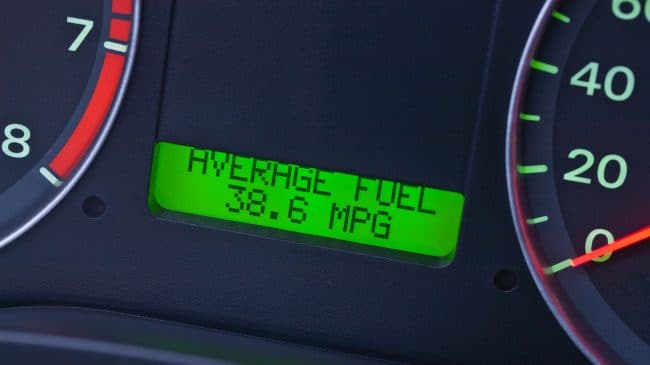Corporate Average Fuel Economy (CAFE) standards require manufacturers to meet minimum fuel economy requirements for their fleets of vehicles sold in the U.S. As a result, manufacturers adjust certain vehicle attributes in order to comply with these standards. Among the many vehicle attributes that a manufacturer may adjust are weight, power, and drivetrain. Such adjustments have consequences for the cost and performance of vehicles, which affects consumers.
In their assessment of the likely effects of CAFE standards, the National Highway Traffic Safety Administration (NHTSA) and the Environmental Protection Agency (EPA) claim that the new standards introduced since 2011 generate substantial benefits for consumers. Underlying that claim is an assumption that consumers fail adequately to take into consideration the economic benefits of more fuel-efficient vehicles when making purchasing decisions. However, a slew of recent studies questions the assumptions made by NHTSA and EPA. This brief assesses the effects of CAFE standards on consumers.
Proponents of CAFE standards claim that they benefit consumers by reducing the total costs of purchasing and using vehicles. The evidence contradicts this claim. Consumers generally purchase vehicles with characteristics that meet their needs, including their expectation of the total cost of future gas purchases. CAFE standards distort manufacturers’ incentives, forcing them to produce new vehicles with lower gas consumption than would be preferred by consumers. As a result, the range of vehicle options available to consumers is limited and many consumers are effectively forced to purchase vehicles that are less able to meet their preferences.
Among the most adversely affected consumers are those, predominantly in rural areas, who seek to purchase used pickups. The distortions created by CAFE standards artificially raise the cost of these vehicles by more than the average savings from reduced gas usage, increasing the total cost of ownership. Given the steep rise in the price of used pickup trucks that resulted from CAFE standards for the 2012–2016 period and current increases occurring as the 2017–2021 standards are implemented, it is likely that prices would rise at an even faster rate if the agencies were to implement standards along the lines of those proposed as “augural” for 2022–2025.
In addition, as noted in a previous paper, fuel economy and greenhouse gas emissions standards for vehicles are a very inefficient way to address issues related to fuel consumption and emissions. Ideally, the federal government would scrap the federal CAFE and greenhouse gas emissions standards. However, this option is not currently on the table.
Ideally, the federal government would scrap the federal CAFE and greenhouse gas emissions standards. However, this option is not currently on the table. Nonetheless, the agencies implementing the standards do have the option of setting future greenhouse gas emissions and CAFE standards at the same level currently set for the model year 2021. That would certainly be preferable to the alternative of raising the standards further. In addition, to the extent that other extant EPA and NHTSA regulations serve as barriers to the introduction of vehicles that better suit consumer preferences, it behooves the agencies to seek ways to remove these barriers. One example noted herein are the essentially arbitrary and unnecessary differences between U.S. and international standards for a variety of vehicle parts. Harmonization of these standards would likely result in the production of vehicles that better serve consumers at a lower price. In addition, to the extent that the threat of anti-trust action impedes collaboration between manufacturers in the development of new technologies, a simple process for the granting of anti-trust waivers could facilitate more rapid innovation, not only of more-efficient vehicles but also in many other aspects of automotive technology.
Full Brief: The Effect Of Corporate Average Fuel Economy Standards On Consumers
Related Research:
CAFE and ZEV Standards: Environmental Effects and Alternatives
Climate Change, Catastrophe, Regulation and The Social Cost of Carbon

